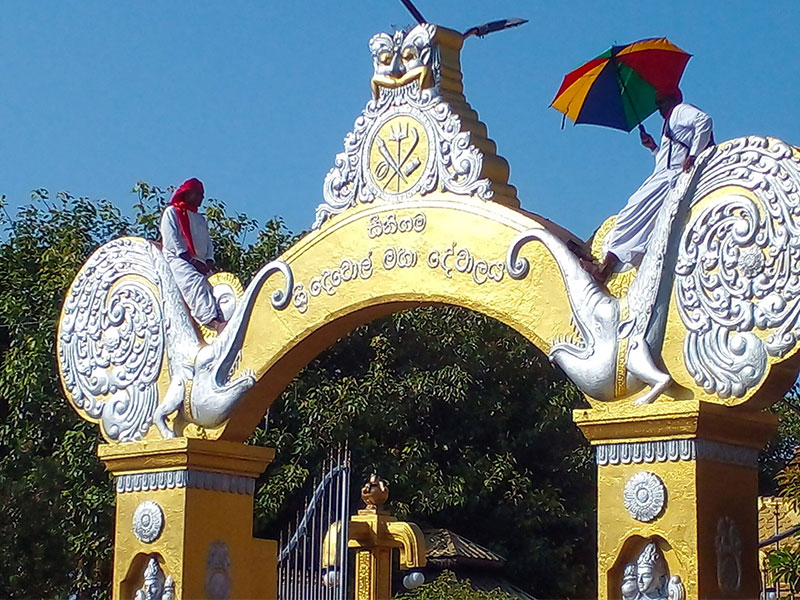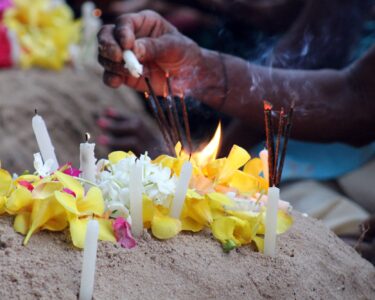Shamans at a Sri Lankan temple known for helping pilgrims place curses on their enemies went on strike last Thursday after appeals to the lord of destruction failed to resolve a pay dispute.
The Seenigama Devale shrine, located on a small islet off Sri Lanka’s southern coast, is a popular destination for pilgrims seeking divine intervention in their personal disputes. The temple’s shamans perform daily rituals involving the grinding of fiery peppers over a millstone as an offering to Devol, a deity whose duties include comforting the faithful and unleashing suffering on their enemies.
However, the temple’s shamans are now on strike after administrators decreed that they would only be entitled to 30% of the cash and jewellery offerings made to Devol, down from the complete share they took earlier.
The shamans, led by chief shaman DM Kumara, say that the new pay rules are unfair and that they deserve to be compensated fairly for their unique and important role at the temple.
“We are the ones who keep the temple running,” Kumara said. “We are the ones who perform the rituals and help the pilgrims. We deserve to be paid fairly.”
Kumara also said that he and his colleagues had appealed to Devol to intervene on their behalf, but that they had not seen any immediate results. As a result, they decided to go on strike as a last resort.
The strike has caused disruption to the temple’s daily activities, and many pilgrims have been left disappointed.
“I came here to have a curse placed on my enemy,” said one pilgrim, who asked to remain anonymous. “But now I can’t do it because the shamans are on strike. I’m very disappointed.”
The temple’s interim administrator, Sarath Disenthuwa Handi, said that the strike was unnecessary and that the shamans were still earning a very good living.
“The shamans are still earning around $1,500 per month, which is 10 times the average salary of a new employee in the state sector,” Handi said. “They are being unreasonable to demand more.”
However, Kumara said that the new pay rules would significantly reduce the shamans’ earnings and make it difficult for them to support their families.
“We are not asking to be rich,” Kumara said. “We just want to be able to live comfortably and provide for our families.”
It is unclear how long the strike will last. The shamans have said that they will not return to work until the temple administration agrees to their demands.
In the meantime, pilgrims who are seeking to have curses placed on their enemies will have to look elsewhere.
The Strike and its Implications
The strike at the Seenigama Devale temple highlights the importance of fair pay for workers, even those who perform unusual or controversial tasks. The shamans at the temple play a vital role in the lives of many Sri Lankans, and they deserve to be compensated fairly for their work.
The strike also raises questions about the role of religion in Sri Lankan society. The Seenigama Devale temple is a popular destination for pilgrims from all walks of life, and the strike is likely to have a significant impact on religious practices in the country.
It remains to be seen how the strike will be resolved. However, it is clear that the shamans at the Seenigama Devale temple are determined to fight for their rights.







